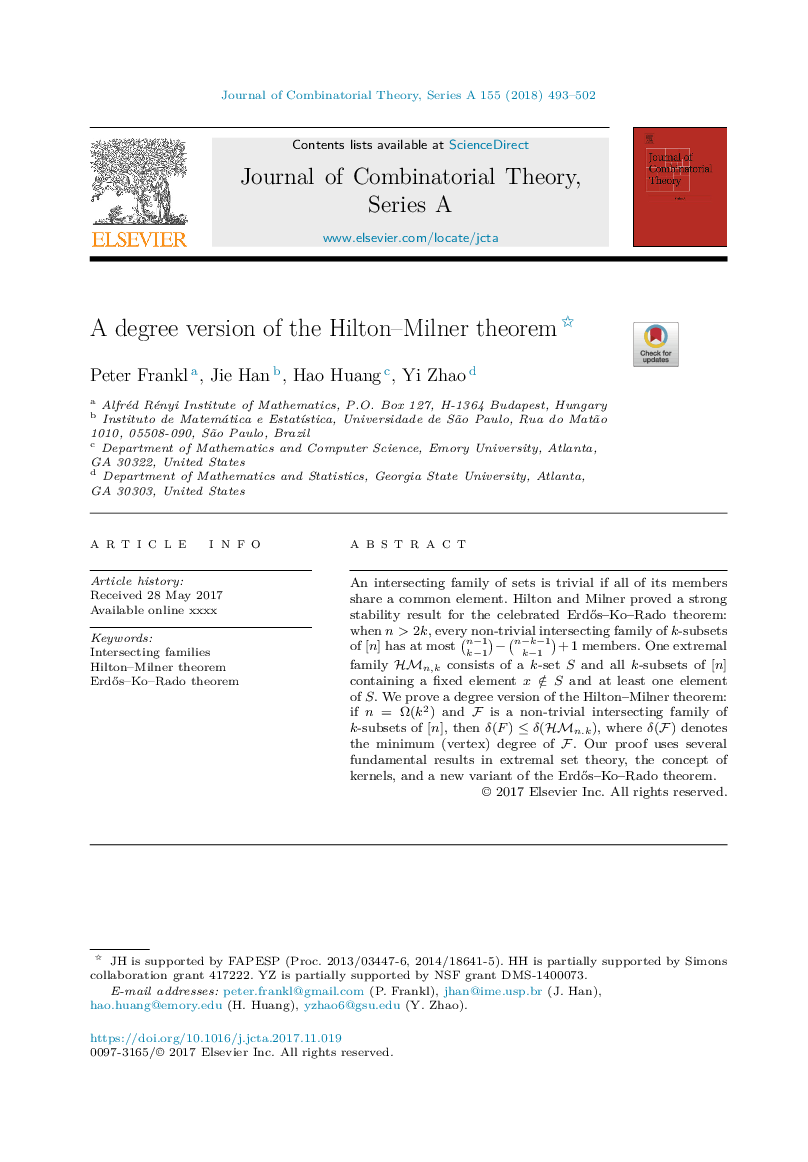| Article ID | Journal | Published Year | Pages | File Type |
|---|---|---|---|---|
| 8903816 | Journal of Combinatorial Theory, Series A | 2018 | 10 Pages |
Abstract
An intersecting family of sets is trivial if all of its members share a common element. Hilton and Milner proved a strong stability result for the celebrated ErdÅs-Ko-Rado theorem: when n>2k, every non-trivial intersecting family of k-subsets of [n] has at most (nâ1kâ1)â(nâkâ1kâ1)+1 members. One extremal family HMn,k consists of a k-set S and all k-subsets of [n] containing a fixed element xâS and at least one element of S. We prove a degree version of the Hilton-Milner theorem: if n=Ω(k2) and F is a non-trivial intersecting family of k-subsets of [n], then δ(F)â¤Î´(HMn.k), where δ(F) denotes the minimum (vertex) degree of F. Our proof uses several fundamental results in extremal set theory, the concept of kernels, and a new variant of the ErdÅs-Ko-Rado theorem.
Related Topics
Physical Sciences and Engineering
Mathematics
Discrete Mathematics and Combinatorics
Authors
Peter Frankl, Jie Han, Hao Huang, Yi Zhao,
